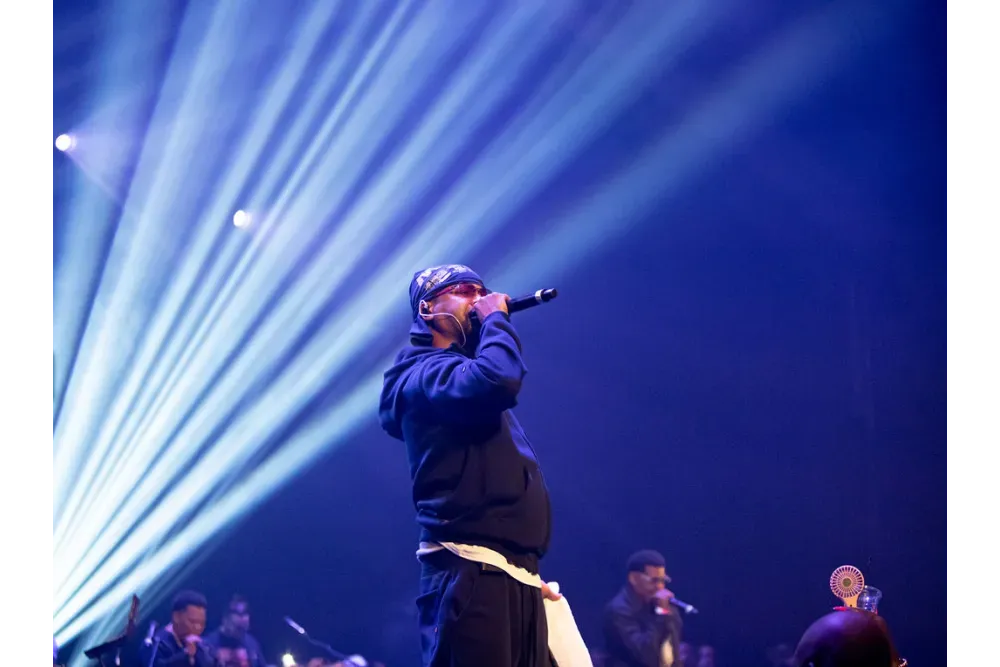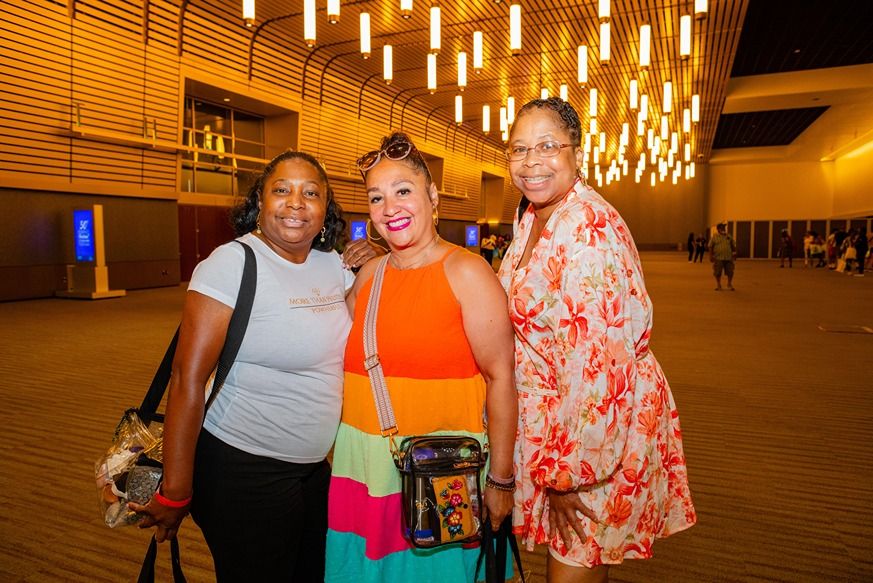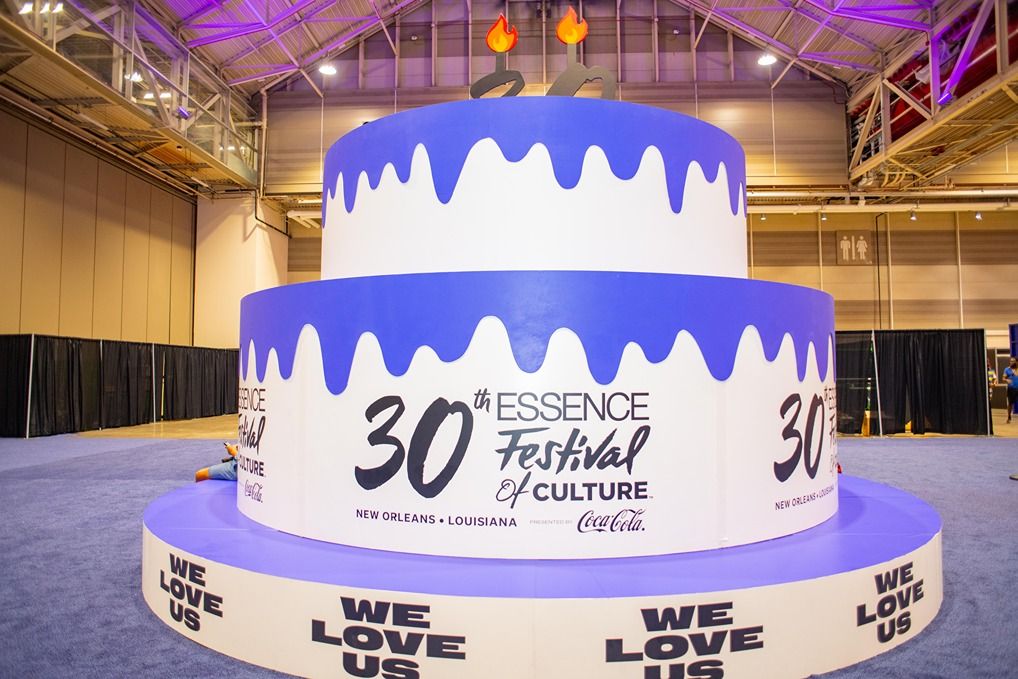Mo' Money, No Problem$
Essence Fest 2025, from July 3 to 6, will bring in a wealth of rap artists to perform in NOLA, from Master P and GloRilla to Nas and more, while also showcasing how hip hop has become one of the most lucrative music genres in the world.
Hip hop grew out of the Black community of New York City in the '70s, stemming from a variety of sources and combining jive talk, disco, funk, and even jazz poetry, among others. In fact, widely seen as the first hit hip hop song, "Rapper's Delight" by the Sugar Hill Gang, was the release that began the commodification of hip hop.
It was this, among other songs and groups, that began the foray of hip hop into the mainstream, and, subsequently, into the business world.
New Orleans Rap

While hip hop did indeed find its footing and foundation in NYC, there are, indubitably, ties to New Orleans, as well. While well known as the birthplace of jazz, which is so entwined with the DNA that compromises NOLA, jazz is sometimes referred to as the only musical genre that is undeniably American. Though debatable, what that takes into consideration is that blues, country, pop, and various subsets of EDM, R&B, and hip hop also have roots firmly implanted locally.
In previous decades, a lot of popular hip hop was about angst. The East vs. West Coast hip hop rivalry saw assassinations of its biggest representatives, while drugs, greed, and violence were romanticized. As the 20th century rolled into the 21st, the dialogue, and the sound, shifted as Southern hip hop became a distinct sound and brand.
Like St. Louis and Atlanta, New Orleans became an epicenter of a certain sound—an acoustic mating call to the dance floor generically lumped together as "bounce" and mainly identified as a "call-and-response" technique. Helmed by an almost soap opera-esque cast including Juvenile, Master P, Hot Boys, No Limit, Mystikal, Lil Wayne, Mia X, and a plethora of others, NOLA's music scene nearly brought a Pax Romana to the tumultuous industry, which not only birthed innovation of sound and experience but also of business, branding, and entrepreneurship.
The Black Dollar

According to the Recording Industry Association of American, hip hop generated $15.9 billion in 2022. "The Black Dollar," which is the collective spending power of Black Americans, is projected to reach approximately $1.98 trillion by 2025 and is expected to reach anywhere from $2.5 trillion to $3 trillion by 2030 (ChatGPT). A random span on the Black Dollar Index includes American Express at 82, Best Buy at 74, Uber at 53, Wendy's at 17, and the Cheesecake Factory at 0.
The "uber entrepreneur" and staple of hip hop culture is Beyonce's husband Jay-Z, whose net worth is $2.5 billion and ticket sales are pacing ahead of Taylor Swift's, although it's been speculated that Jay-Z might have initiated a lobbying strategy. His Live Nation deal, which also included the dramatic Super Bowl LIX in New Orleans' halftime show, was estimated to be $150 million.
Of course, Super Bowl LIX also brings to mind hip hop's previous reputation for drama with the Drake vs. Kendrick Lamar feud spilling over into conflict across gossip, trade, and social media, with Lamar being awarded the gig and snipping at Drake by featuring Drake's ex-girlfriend Serena Williams crip walking in the middle of the show.
Ever the G.O.A.T. of Louisiana hip hop, Lil Wayne was also embroiled in the PR fray with a flagrant display of loyalists coming out of NOLA. Weezy had his own victory as the first inductee to the "New Orleans Walk of Fame" under the purvey of NOLA's Mayoral-appointed, Nighttime Mayor Mystikal, as well as his brand relationships that include Mountain Dew and Old Navy.
Government appointees, Super Bowl performers, technology developers—such as Dr. Dre's and Eminem's Beats, which Apple bought for $3.2 billion—and fashion designers, NOLA rappers are a global economic and cultural force. Within the fashion industry, it is Pharrell Williams' collaboration with Louis Vuitton that sees a cultural merger of his "normcore" style with LVMH's sartorial heritage.
Jeffrey Deon Chambers, aka DeonRaps, a self-described "multifaceted rapper," spoke about this new expansion and mixture of business and hip hop when he said, "I believe that this new wave of influencers-turned-rappers can generate wealth, but it's taking some hits on the culture and the music itself. Hip hop was never supposed to be a get-rich-quick scheme, and it makes it hard to distinguish who is in it for the culture and who's in it for the bread."
Christian Mitchel, a native New Orleanian, worked on the Essence Festival for years for Time Warner in NYC. The NOLA native worked on sponsorship securement and relations for brands such as Coca-Cola and other brand leaders. Mitchel said, "There are many things that can be done right, or wrong, and the profits sometimes trump the importance of content. New Orleans, for one, understands the dichotomy."
This business of hip hop swings a pendulum between hard and soft power. Think the right and left brains playing a tug of war with luxury, sex, money, and drug running while "dropping a beat." CJ Harrison, a professor at the University of Central Florida's DeVos Sport Business Management Graduate Program, said, "Emotion, return on emotion. That's what hip hop does differently. They have another level of emotion."
Essence Fest

That marriage of business and hip hop will definitely be on display at this year's Essence Fest, which will feature a variety of artists including hip hop stars GloRilla, Nas, and Master P. Essence will also feature a variety of other hip hop and R&B artists, such as Summer Walker, Davido, Muni Long, and Donell Jones, from July 4 to 6. Essence is a massive event that will showcase these hip hop artists, which shows that hip hop artistry, the aforementioned return on emotion, business, the Black community, and the celebration of all can, indeed, meld into at least one fantastic event.

